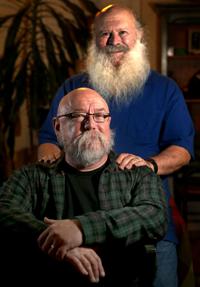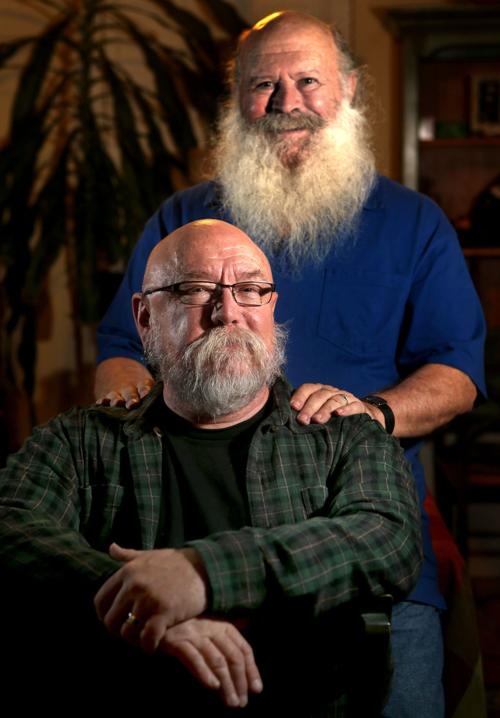When Mark Rosenbaum tested positive for the HIV virus at 26, the prognosis was bleak.
It was 1983, two years before the HIV (human immunodeficiency virus) test became widely available. Little was known about HIV, except that people were getting sicker and sicker, and dying. That year, San Francisco General Hospital opened the first dedicated AIDS (acquired immune deficiency syndrome) ward in the U.S.
Within days it was fully occupied.
“I didn’t discount what I was seeing and experiencing — and I went to a lot of ‘celebrations of life’ when friends died,” said Rosenbaum, now a 58-year-old Tucson resident. “But I never really let it change my outlook. I decided I would be me, continue life as I knew it, until I couldn’t any more. Fortunately, 32 years later, that point hasn’t come.”
POZ magazine, a print and online magazine for people living with and affected by HIV/AIDS, earlier this month announced the sixth annual POZ 100. This year’s awards honor individuals from around the country who have been living with HIV since 1995 (and earlier). Three Arizonans were among the honorees, including one Tucsonan — Rosenbaum.
Rosenbaum, a longtime community volunteer who spent 24 years working as a manager and director of the information technology staff at Pima County Superior Court, is now operations manager for the Tucson Interfaith HIV/AIDS Network. He’s been with his partner, who remains HIV negative, since 1997. They’ve been married since 2009.
The Star last week asked Rosenbaum about his experiences living with HIV. Here are excerpts from the interview:
What was the political climate like at the time you tested positive?
Ronald Reagan was president and as we all know, he did his best to ignore the news about HIV. He didn’t take a stand, and fought the notion of providing information about AIDS as part of sex education.
How did you regard the future?
I received my positive diagnosis in the spring of 1983. At the time, I was living in Jersey City, and saw a doctor in Manhattan who was involved with a small group of doctors that were doing early testing with the new test. The prognosis back then wasn’t good — guys got sicker and sicker and then died.
I celebrated New Year’s in 2000 as the New Year’s I never thought I’d see.
Have you always been open about being HIV positive and if so, why?
I’ve always been very open about my whole life in its entirety. I’ve always believed in being who I am, and letting people know the whole Mark. I’ve never been ashamed of being gay or being HIV positive, and I’ve never allowed those things to affect how I relate to others
What is the major positive progress that has been made on HIV?
Probably the first important progress came with the release to the market of the more conclusively effective drugs that began in the mid-’90s.
Treatment as prevention (TasP) and pre-exposure prophylaxis (PrEP) are also important. It was the anti-retroviral treatment (ART) study in 2010 that really provided hard proof that HIV-positive patients on ART therapy had such a significant reduction in their likelihood of infecting partners.
What are some challenges that remain?
Inequities in care, especially for people with financial hardships, people living in the South, and transgender women of color.
Also, providing adequate and successful prevention information and care for young people. Young people are more susceptible to the negative influences of stigma — from family, from peers, and so forth. They are often harder to convince of the benefits of getting tested. They may also have the ‘invincibility’ effect. All of these issues become greater when the young person is without a solid support foundation or living environment.
What compels you to continue working on HIV/AIDS issues?
My greatest drive is the belief that by staying involved in HIV issues and continuing to encourage testing, encourage HIV drug adherence for positive folks, and speaking out about living with HIV, I can help fight the spread and reduce the stigma of HIV.





